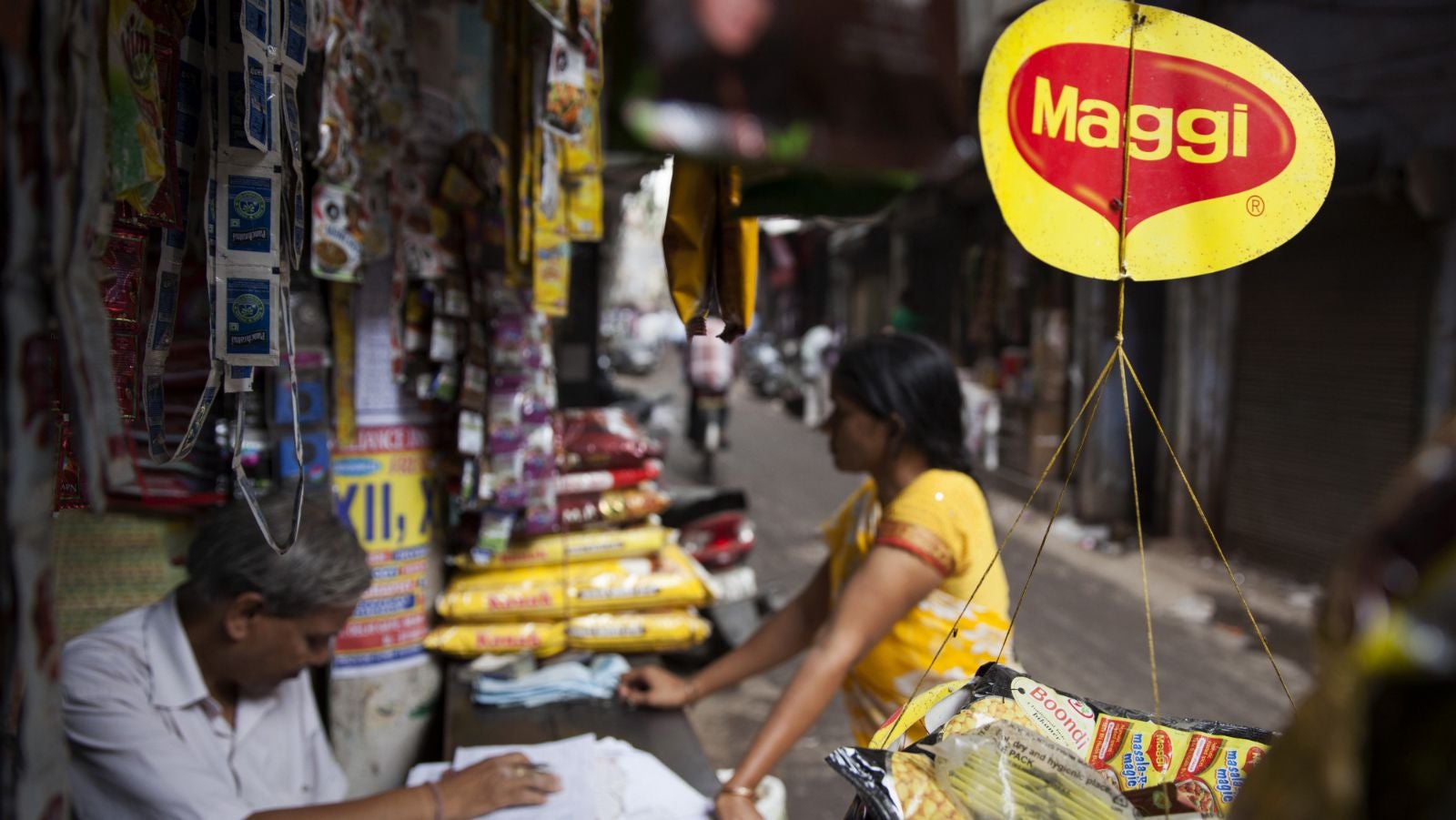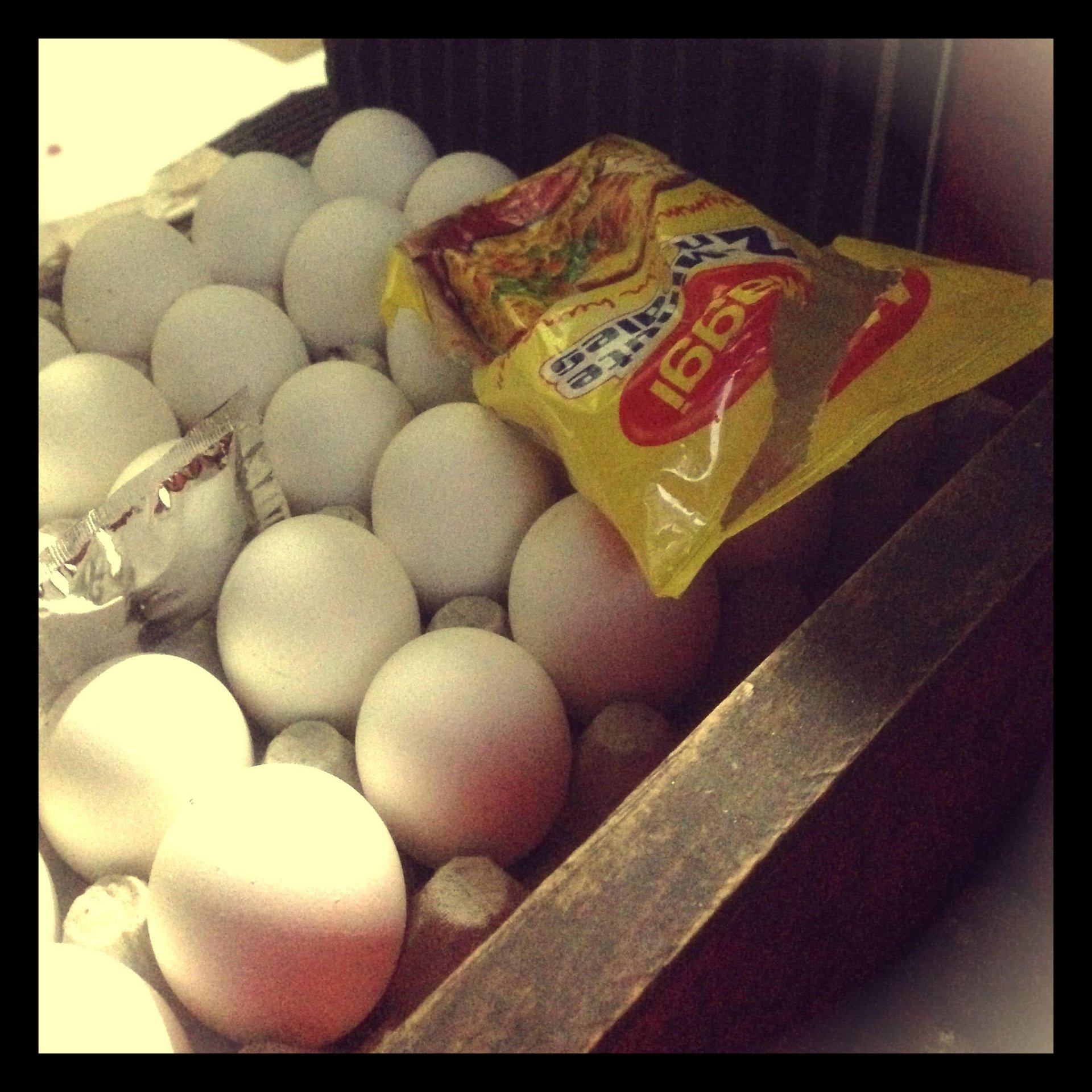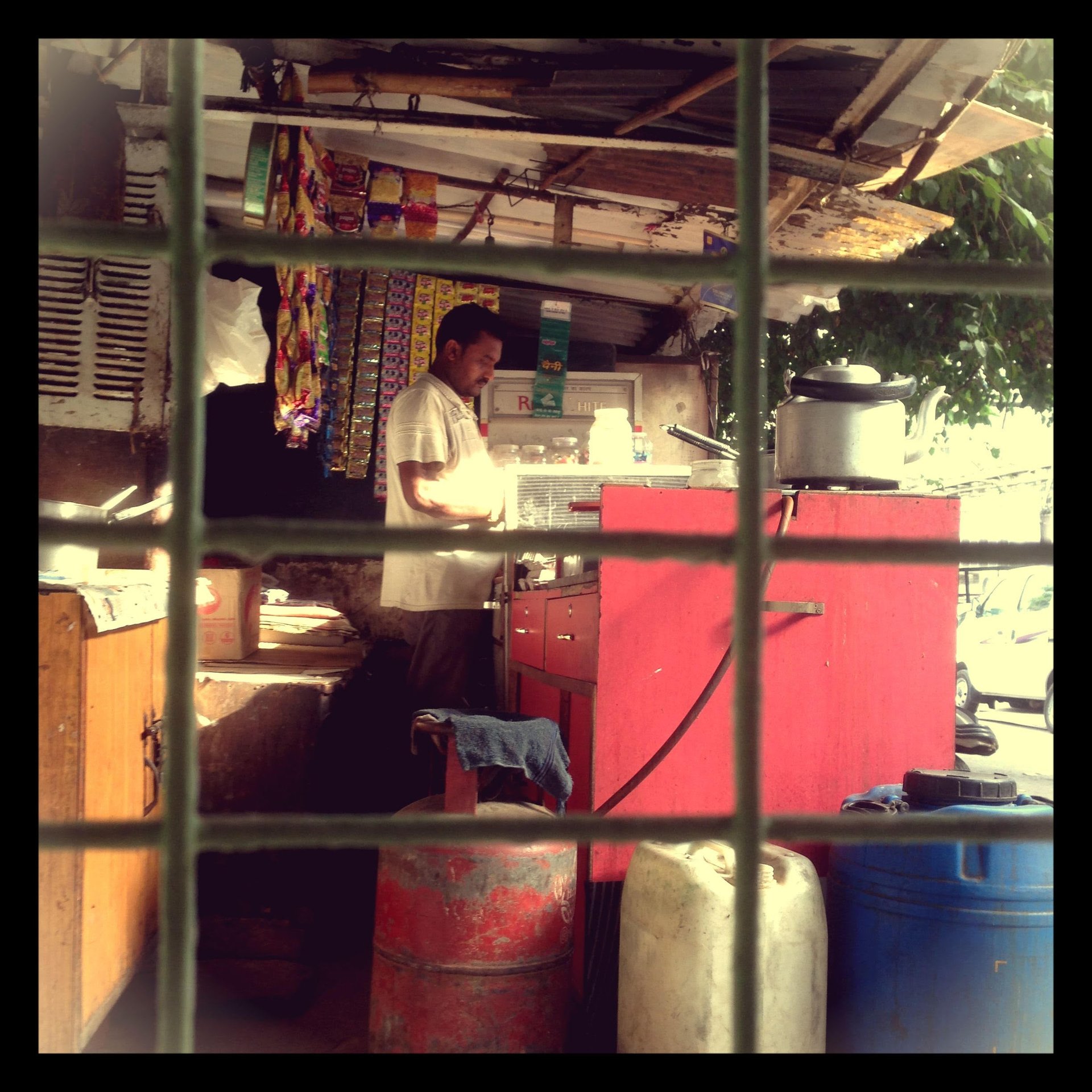At a Delhi tea shop, an evening of slurping—and debating—Maggi
The part of New Delhi’s Bahadur Shah Zafar Marg that houses the greatest concentration of newspaper offices in India’s capital city faces a wide, two-lane road, hemmed by narrow services lanes. Behind the rigid line of newspaper buildings is another, even narrower, dingier service lane.


The part of New Delhi’s Bahadur Shah Zafar Marg that houses the greatest concentration of newspaper offices in India’s capital city faces a wide, two-lane road, hemmed by narrow services lanes. Behind the rigid line of newspaper buildings is another, even narrower, dingier service lane.
At 5 PM on June 03, in this last lane, journalists are milling about a ramshackle shop. In groups of four or five, they stand in front of the small stall that sells tea, buns and omelettes, cigarettes—and, hold your breath, Maggi noodles.
“Ban ki huyi cheez ko khane mein zaada mazaa hai (There’s more fun consuming a banned product),” a bespectacled Dibakar Bhattacharya (name changed on request), 50, said in Hindi. Then, turning to 35-year-old Dilip Kumar, who’s dishing out a plate of bun and omelet, Bhattacharya, a journalist, instructs: “Don’t overcook it.”
“Maggi, Maggi, Maggi,” another customer sings his order to Kumar in the instant noodle’s iconic advertising jingle.

It’s been a difficult few days for Nestle, the company that owns India’s favourite snack. Late last month, Uttar Pradesh’s Food Safety and Drug Administration found high levels of monosodium glutamate (MSG) and lead in some of the Maggi samples they tested. That led to the north Indian state ordering Nestle to recall a batch of the product.
On June 03, the Delhi government banned the sale of Maggi noodles from stores for 15 days after it found 10 out of 13 samples with lead higher than permissible limits.
Even Kerala, Tamil Nadu, Haryana, Maharashtra, Goa, Gujarat, and West Bengal have begun testing Maggi samples.
Besides these, Kishore Biyani’s Future Group—one of India’s largest brick and mortar retailers—has stopped selling Maggi at its outlets, including Big Bazaar. Even the Indian Army is staying away from Maggi.
Kumar, too, is taking no chances.
At his tea shop, there are no packets on display. Instead, he stealthily takes out a single Maggi pack from a white plastic bag containing not more than eight to ten packets. Then, he chops a green chilly and a tomato, sautés them in oil, adds some water, brings to boil, and finally puts the Maggi.

“Why should I take the risk?” asked Kumar, who inherited the shop from his father some 15 years ago. “And since the rumour started sometime back, there has been less demand. So, I don’t need as many packets.”
“Even the supplier who brings my stock has curtailed the supply. He says he doesn’t have the stock to provide us,” Kumar said, stepping outside his shop to hand out a cup of tea to a ragpicker.
A packet of Maggi costs Rs10, and Kumar charges Rs25 for each plate. In roughly three hours, he manages to sell only three plates of noodles, compared to between 20 and 25 portions of bun and omelette. “Earlier, I would sell as much Maggi as bun and omelette,” said Kumar.

But he is not anxious about the loss of income. In fact, he is petrified of taking orders for Maggi. “I don’t want any trouble, so I will not sell it.”
Maggi has been critical to Nestle’ growth in India—growing in double digits for almost a decade—on the back of the country’s expanding modern retail, and the company’s targeted promotions and innovation. It contributed about 20% of Nestle India’s revenue, and was among India’s five most trusted brands.
That trust has now been shaken—partly because of Nestle’s slow response to the crisis.
“Nestle took its own time to react to the news. When lead and other harmful ingredients first made news a week or two ago, it should have reacted immediately,” said Abhijeet Ghosh (name changed), 41, slurping down Maggi with Bhattacharya.
But his colleague, Prem Singh, holds that banning Maggi isn’t right. ”A ban is criminal,” he argued. “It’s not practically possible. So, blowing it out of proportion is not the way to go about it. You still sell cigarettes and tobacco.”
Meanwhile, Bhattacharya’s concerns are more worldly. “I wonder what would happen in school and college hostels,” he said. “Students live on it.”